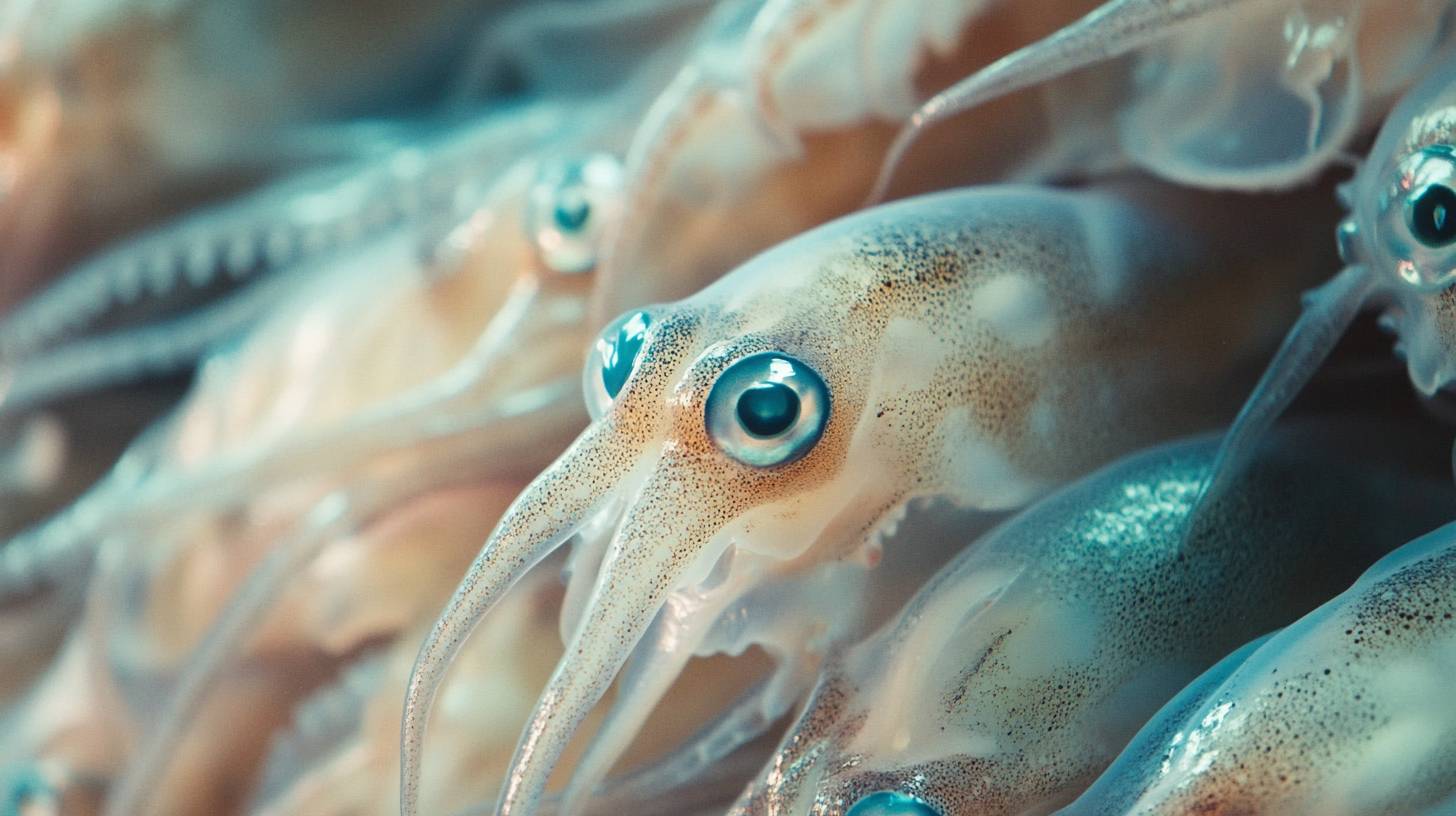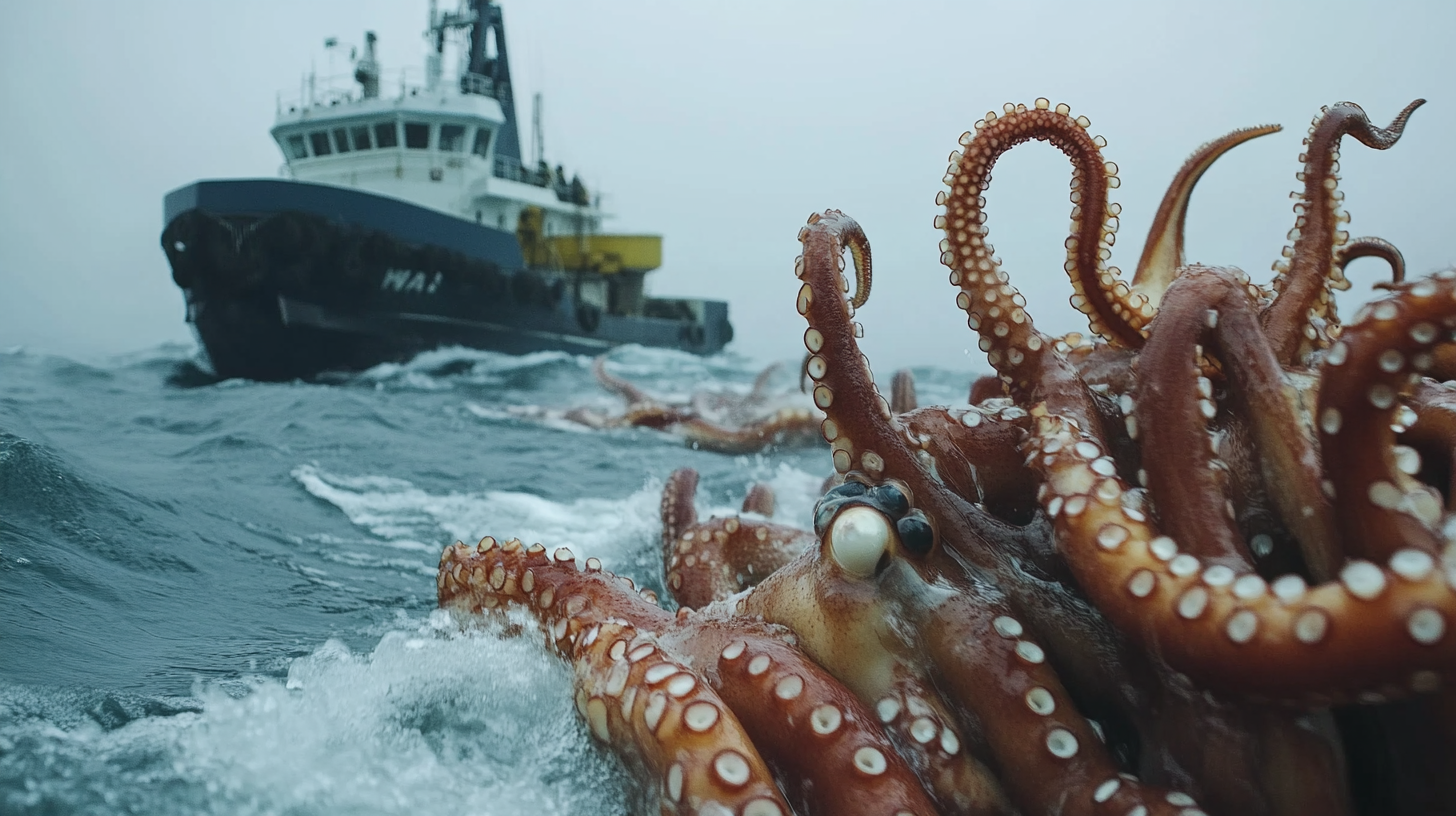In an age where global trade is increasingly scrutinized for its environmental impact and ethical practices, China’s frozen squid tentacles emerge as a beacon of innovation and responsibility. As consumers worldwide demand higher standards in quality and sustainability, the Chinese seafood industry has responded by elevating its production methods, ensuring not only the freshness and taste of frozen squid tentacles but also their responsible sourcing. This blog will delve into how these frozen delicacies are not just a culinary delight but also a symbol of China's commitment to global trust through enhanced quality control and sustainable fishing practices. By examining the journey of frozen squid tentacles from ocean to plate, we aim to highlight the pivotal role they play in setting new benchmarks in sustainability, while fostering international confidence in Chinese seafood products.

China's seafood industry is undergoing a dramatic evolution, marked by an increasing commitment to quality and sustainability. As consumers become more discerning, there is growing pressure on producers to ensure that their practices not only meet high standards of quality but also protect the environment. This shift is exemplified by the frozen squid tentacles, which are now being harvested and processed with a keen focus on sustainable methods.
To maintain quality while embracing sustainability, producers are implementing advanced aquaculture techniques. These practices minimize environmental impact and promote biodiversity, ensuring that seafood remains a viable resource for future generations. One effective tip for seafood producers is to invest in technology that monitors and manages harvesting impacts on marine ecosystems, thereby fostering a healthier environment for both sea life and the fishing industry.
Moreover, transparency in sourcing is becoming increasingly important. Consumers are seeking assurance that the seafood they purchase is ethically sourced. A recommended approach for businesses is to provide clear labeling and traceability throughout the supply chain. This commitment not only builds trust with consumers but also encourages responsible consumption patterns, supporting the wider goal of sustainable seafood.

As the global demand for seafood continues to rise, innovative practices in squid fishing are redefining standards worldwide. China, a leading player in the seafood industry, is implementing advanced fishing techniques that prioritize sustainability and quality. By employing selective fishing methods and adhering to strict harvesting regulations, Chinese fishermen are not only ensuring the abundant supply of squid but also protecting marine ecosystems. This commitment to responsible fishing sets a benchmark that other countries can aspire to follow.
When engaging in sustainable squid fishing, consider these tips: First, always opt for equipment that minimizes bycatch. Using specialized nets can help target only the desired species, reducing harm to non-target marine life. Second, support suppliers who participate in sustainability certifications. Look for products labeled with certifications like the Marine Stewardship Council (MSC) that signify environmentally-friendly practices. Lastly, increasingly engage with local fishing communities to understand their sustainable methods; collaboration can lead to innovative solutions and help preserve natural resources.
As these practices gain traction, they are setting a new standard in the seafood market, promoting global trust and consumer awareness about sustainable options. This shift not only benefits the environment but also creates a ripple effect, encouraging other nations to enhance their fishing techniques and implement responsible practices that align with sustainability goals.

The culinary world is witnessing a transformation, largely driven by innovative products like China’s frozen squid tentacles. These versatile seafood delicacies are not only redefining traditional dishes but are also setting new standards in both quality and sustainability. Chefs across the globe are incorporating frozen squid tentacles into their menus, celebrating their tender texture and rich umami flavor. As a result, consumers are discovering new ways to enjoy seafood, from exquisite appetizers to hearty main courses, significantly broadening their culinary horizons.
Moreover, the emphasis on sustainability in sourcing these squid tentacles reflects a growing awareness within the food industry. Chinese suppliers are adopting environmentally friendly practices, ensuring that their fishing methods do not harm the marine ecosystem. This commitment resonates with conscious consumers who prioritize sustainable options in their dining choices. The rise of frozen squid tentacles is not just a trend; it signifies a shift towards more responsible eating habits, merging gastronomy with a commitment to the planet. As this ingredient gains popularity, it’s clear that culinary trends are evolving to embrace both exceptional taste and ethical standards.
In today's seafood industry, consumer trust hinges on transparency within supply chains. As awareness around sustainability grows, so does the demand for certified seafood products that guarantee ethical sourcing and environmental responsibility. The qualitative research underscores how supply chain certifications bolster consumer perceptions, directly influencing purchasing decisions and fostering brand loyalty. This shift towards informed consumerism is crucial as it encourages brands to prioritize transparency and quality in their offerings.
Moreover, innovations such as blockchain technology and enhanced traceability systems are revolutionizing how seafood companies operate. These advancements provide unprecedented visibility, ensuring accurate tracking of products from ocean to plate. By liberating ocean data and shedding light on sourcing practices, companies can effectively avoid illegally caught seafood, further enriching consumer trust. As the market evolves, the implementation of standardized labeling, like the GGN label, empowers shoppers to make informed choices, aligning their purchases with sustainable practices. In this landscape, building trust through transparency is not just beneficial; it is essential for the future of responsible seafood consumption.
| Product Type | Source | Sustainability Certification | Quality Assurance Practices | Consumer Trust Rating |
|---|---|---|---|---|
| Frozen Squid Tentacles | China | Marine Stewardship Council (MSC) | Regular quality inspections, traceability systems | 4.7/5 |
| IQF Squid Rings | China | Global Seafood Initiative (GSI) | Sustainable harvesting, chain of custody | 4.5/5 |
| Fresh Squid | China | Friend of the Sea (FOS) | Strict handling and storage regulations | 4.8/5 |
| Dried Squid Strips | China | None | Traditional methods, minimal processing | 4.2/5 |
In the wake of increasing global demand for sustainable seafood, the Korea Testing & Research Institute (KTR) is stepping up as a pivotal force for Korean exporters. With the implementation of a Global Certification system, KTR emphasizes the importance of adhering to rigorous sustainability standards, ensuring that Korean seafood products meet European market requirements. This move is substantiated by recent industry reports indicating that consumers are willing to pay up to 20% more for certified sustainable seafood, reflecting a significant shift in purchasing behavior.
As the discussion around sustainability intensifies, Alaska's seafood industry faces challenges regarding the certification of Russian seafood. Alaska’s Fish and Game Commissioner has raised concerns about the reliability and implications of labeling Russian-caught fish as sustainable, highlighting a growing call for stricter scrutiny on international imports. This situation underscores the necessity for robust certification to protect local industries and maintain consumer trust in seafood sourcing.
**Tips:** When considering seafood options, look for certifications such as Marine Stewardship Council (MSC) or Aquaculture Stewardship Council (ASC) logos on products to ensure sustainable practices. Additionally, staying informed about the sourcing of your seafood can help you make more conscious choices that support global sustainability efforts. Engaging with local fisheries that prioritize ecological integrity not only supports the local economy but also encourages sustainable practices across the industry.
